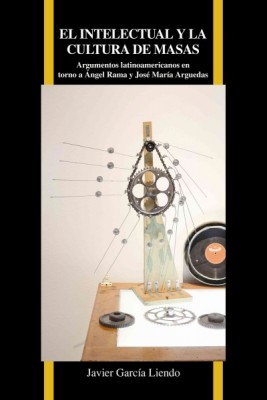| El intelectual y la cultura de masas: Argumentos Latinoamericanos En Torno a Ángel Rama Y José María Arguedas Contributor(s): García Liendo, Javier (Author) |
|
 |
ISBN: 1557537615 ISBN-13: 9781557537614 Publisher: Purdue University Press OUR PRICE: $44.55 Product Type: Paperback Language: Spanish Published: November 2016 |
| Additional Information |
| BISAC Categories: - Literary Criticism | Caribbean & Latin American - Language Arts & Disciplines | Lexicography - Social Science | Popular Culture |
| Dewey: 306.098 |
| LCCN: 2016013429 |
| Series: Purdue Studies in Romance Literatures |
| Physical Information: 0.8" H x 5.9" W x 8.9" (0.95 lbs) 262 pages |
| Themes: - Cultural Region - Latin America |
| Descriptions, Reviews, Etc. |
| Publisher Description: El intelectual y la cultura de masas, de Javier Garc a Liendo, estudia las respuestas intelectuales de ngel Rama (Uruguay) y Jos Mar a Arguedas (Per ) a los efectos de la cultura de masas en la cultura de la imprenta latinoamericana y en las culturas ind genas de los Andes. Explora la participaci n de Rama y Arguedas en la conceptualizaci n y promoci n de nuevos espacios culturales incentivados por la mercantilizaci n y la industrializaci n de la cultura, seg n el capitalismo transformaba los imaginarios y materialidades que hab an dado forma a sus proyectos culturales. Por medio del an lisis de objetos de la cultura de la imprenta, en particular aquellos relacionados con el trabajo editorial de Rama -como los libros de bolsillo y una enciclopedia popular- este trabajo examina las transformaciones que estaban ocurriendo en Am rica Latina, tanto a nivel de la producci n como de la circulaci n, se alando la emergencia de nuevas redes de comunicaci n entre intelectuales y p blicos nacionales y regionales. Similarmente, explora el rol de las tecnolog as de comunicaci n emergentes (grabaci n de sonido, radio) en la reconfiguraci n como cultura de masas de las culturas rurales ind genas en el Per . En este contexto, el trabajo de Arguedas con el folklore y su posterior envolvimiento con la m sica popular andina en Lima son estudiados como respuestas a un violento proceso de mercantilizaci n de la cultura musical andina, incentivado por las migraciones masivas de las zonas rurales a las ciudades y la urbanizaci n del Per . Finalmente, este libro presenta un an lisis de Rama y Arguedas que trasciende su categorizaci n como cr tico literario y escritor, respectivamente, al analizar sus obras a trav s del concepto de pr ctica, el cual re ne la totalidad de su trabajo, incluyendo periodismo, antropolog a, folklore, edici n, creaci n de redes intelectuales y promoci n cultural. Los cap tulos de este libro invitan a repensar nociones establecidas sobre la relaci n entre cultura y capitalismo en una poca en que la revoluci n marcaba dominantemente el campo intelectual latinoamericano. El intelectual y la cultura de masas, by Javier Garc a Liendo, studies the responses of ngel Rama (Uruguay) and Jos Mar a Arguedas (Peru) to the effects of mass culture on Andean indigenous cultures and Latin American print culture during the second half of the twentieth century. It explores the part that Rama and Arguedas played in the conceptualization and promotion of new cultural spaces made possible by commodification and industrialization, as capitalism transformed the imaginaries and materialities that had shaped their cultural projects for Andean and Latin American cultures. Through a material analysis of print culture objects, in particular those resulting from Rama's editorial ventures--such as pocket paperbacks and a popular encyclopedia--this work examines the transformations occurring at the time in Latin America at the level of production and circulation of culture, and thus sheds light on the emergence of new networks of communication between intellectuals and national and regional publics. Similarly, it explores the role of emergent communication technologies (sound recording and radio) in the reshaping of rural indigenous cultures into a mass-oriented popular culture in Peru. In this context, Arguedas's work with folklore and his later involvement in the Andean popular music scene in Lima are studied as responses to a violent process of commercialization of traditional Andean musical culture, a result of mass migration from rural areas to cities and urbanization. Finally, this book presents an understanding of Rama and Arguedas that transcends their categorization as literary critic and writer, respectively, by analyzing their work through the concept of practice, which encompasses the totality of their work, including journalism, anthropology, folklore, editorial work, intellectual networking, and cultural promotion. Its chapters invite a rethinking of established notions of the relation between culture and capitalism during the heyday of revolution in the Latin American intellectual field. |